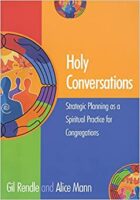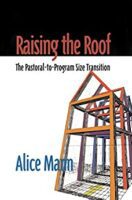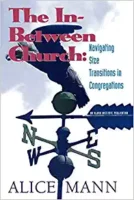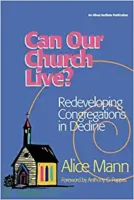[This article is part 6 of the series Crunch Time for Small Congregations.]
When a congregation is considering its options, I believe it is healthy to put “holy death” on the list—to face the possibility of closing squarely and openly. There is nothing shameful in admitting that the particular purpose we were here to serve in an earlier time has now run its course, and that God has not given us—as a congregation—either a new purpose or the new energies to launch a fresh chapter in our story.
Often the conversation about ending helps a congregation to strengthen its commitment to another path. In response to the question, “Are we finished?” members answer, “No!”—and then get on with exploring the corollary questions:
- What is the meaningful work God has given us to do now?
- What energies and gifts has God given us to carry on that work?
Wrestling with those corollary questions sometimes helps a congregation to shape a meaningful next chapter. And sometimes it brings a congregation back to the main issue—”We didn’t think we were finished, but in reality, we have neither the purpose nor the energy to carry on. Yes, we have come to an ending.” It is painful to face these questions, but it is also painful to avoid them while the various aspects of the congregation’s life wither away before our eyes, and congregational life becomes more and more depressing for the people who are left.
Denominational officials (in those religious systems where the individual church or synagogue must vote to close) are sometimes tempted to urge closing.
Unfortunately, the appearance or reality of external pressure to close can sometimes rally a congregation that might otherwise have admitted on its own that it could not continue. As frustrating as it may be to wait for the moment of readiness, this may, in the end, be the most effective and efficient approach. (Denominational officials might ask themselves, however, whether they are in some way subsidizing the congregation’s avoidance of reality.)
If you think that ending is an option your own congregation needs to explore, you can view an excellent resource from the Disciples of Christ called “Sacred Stories: Continuing a Congregation’s Legacy of Ministry.”
A fuller discussion of congregational closing can be found in Ending with Hope, edited by Beth Ann Gaede.
[Return to the series Crunch Time for Small Congregations.]
Alice Mann is a leading consultant, educator, and author in the field of congregational development, whose work has focused on strategic planning, breaking through size plateaus, creating new pathways for small and struggling churches, and helping congregations to discern and care for the “soul” of their local community. Mostly retired from consulting and teaching, Alice is an active member of a small, engaged urban congregation and also offers leadership for faith-based community organizing in her region. She occasionally accepts one-time conversations with former clients and other church leaders on issues close to her heart.
Books by Alice Mann





